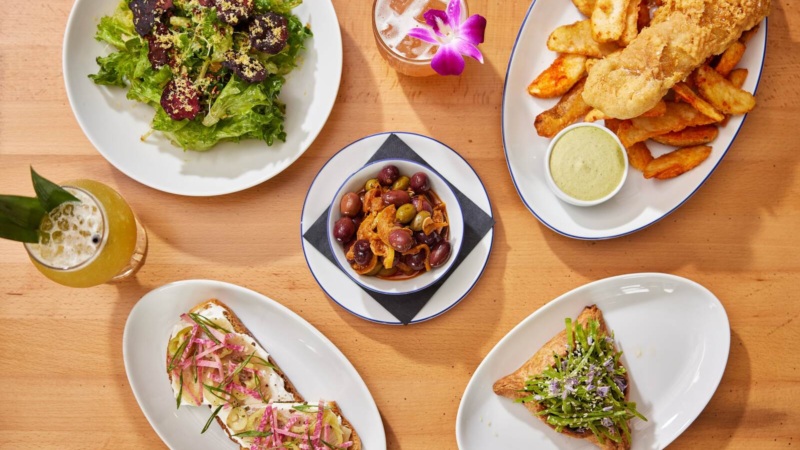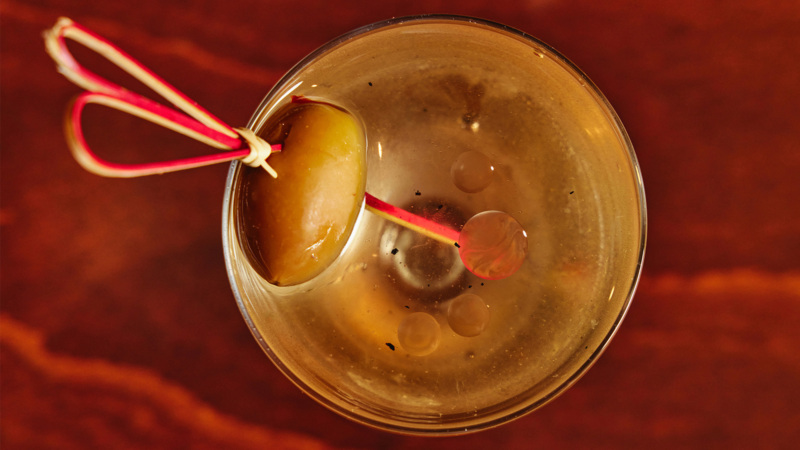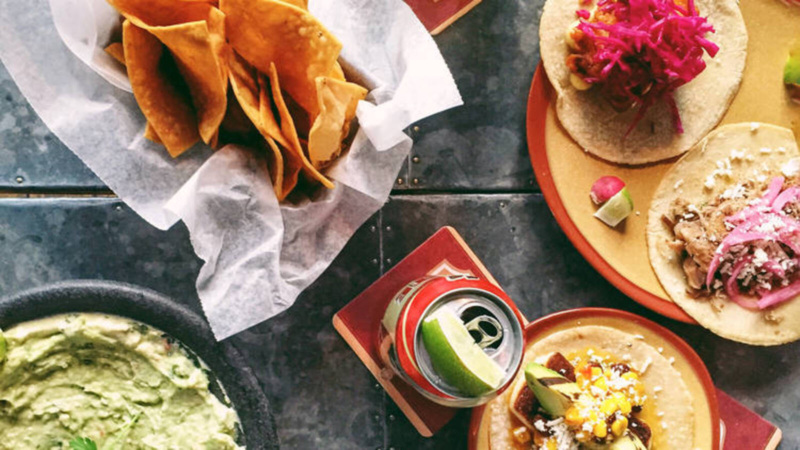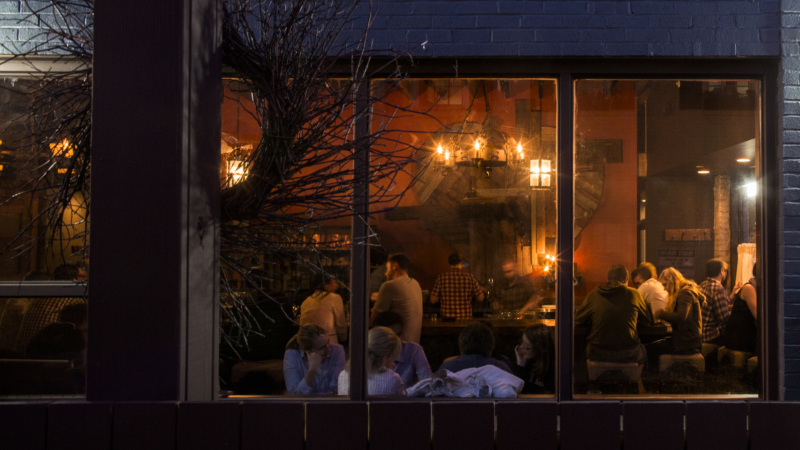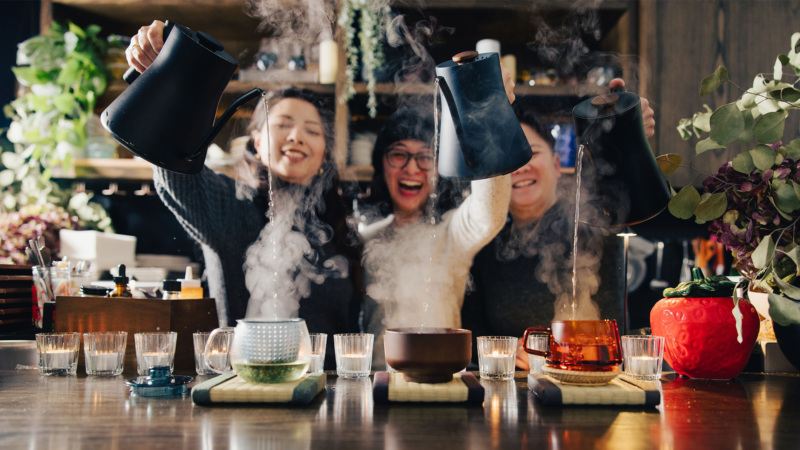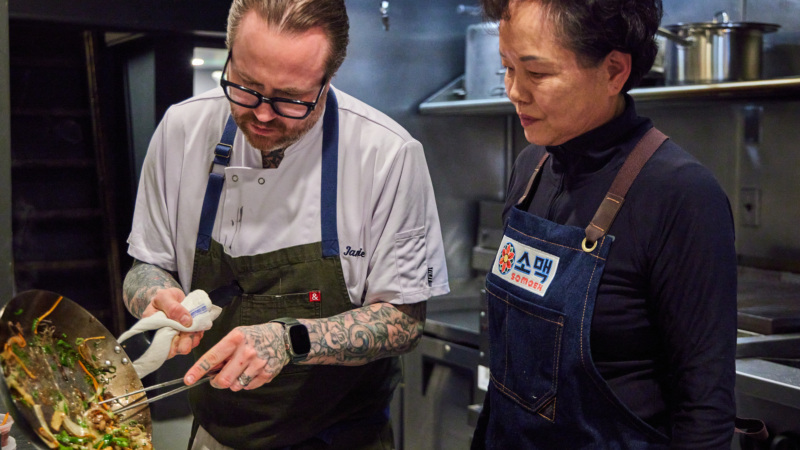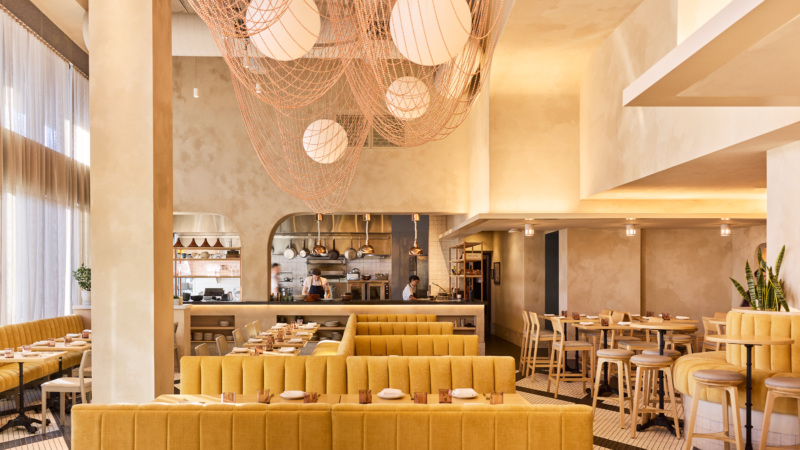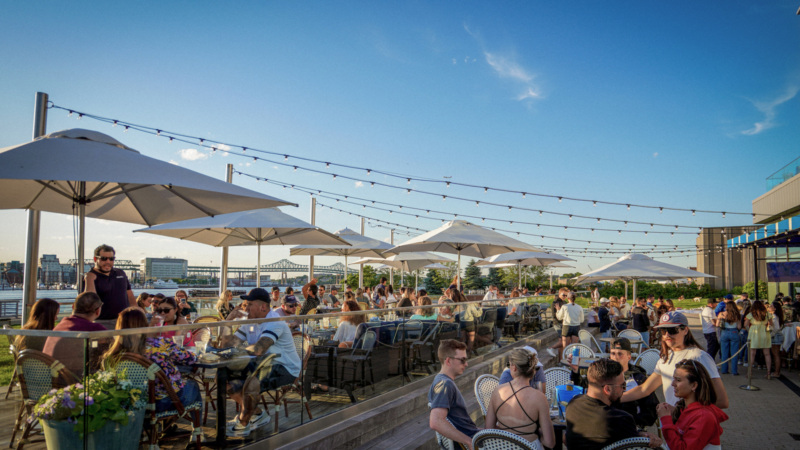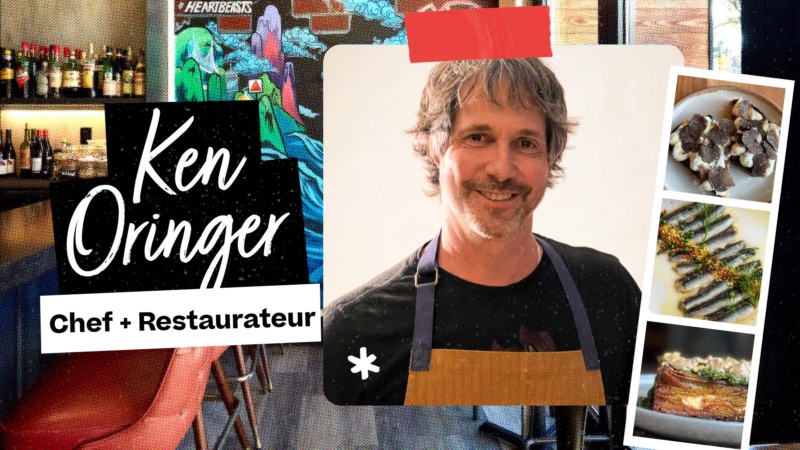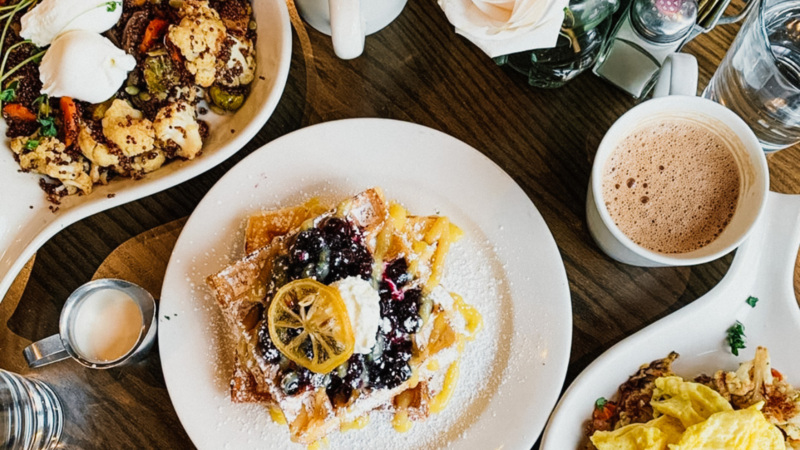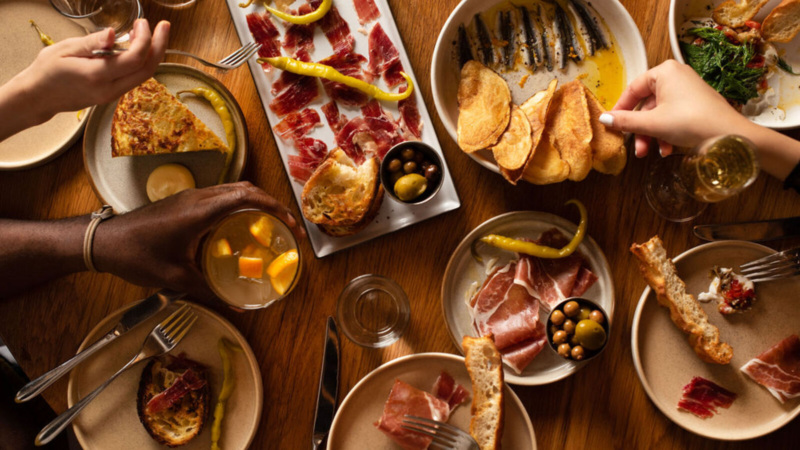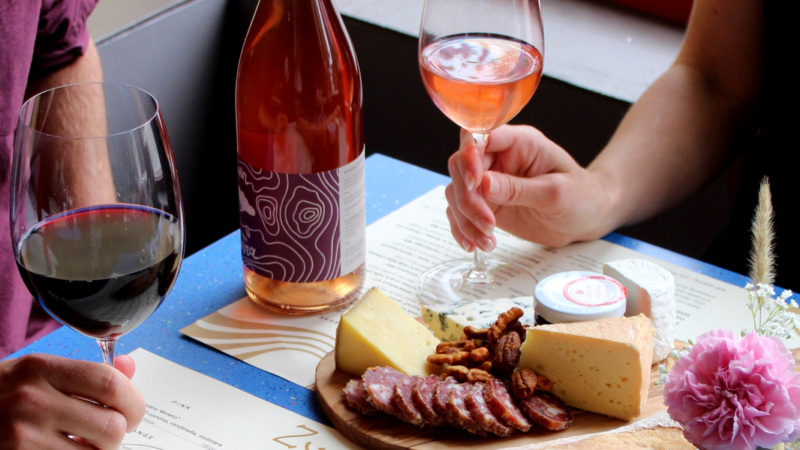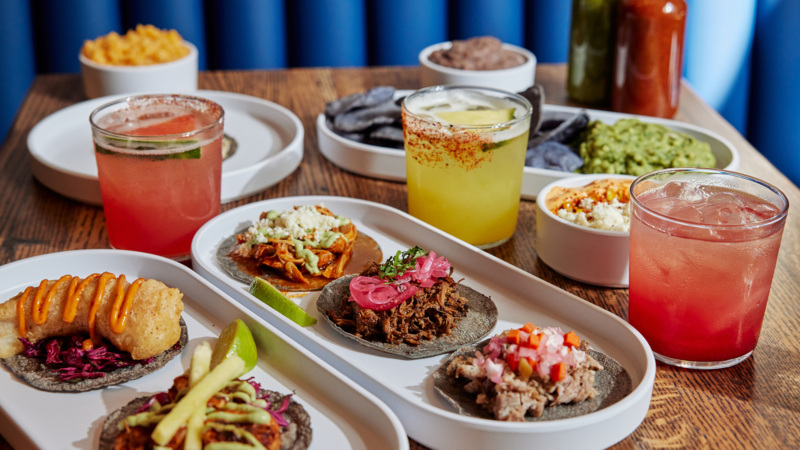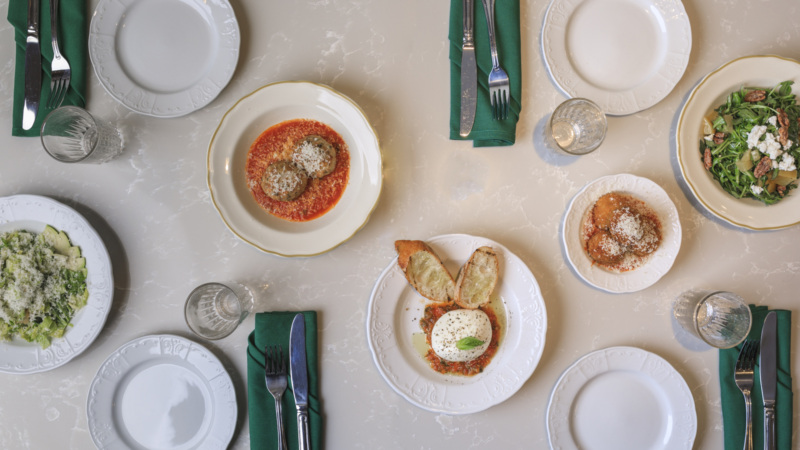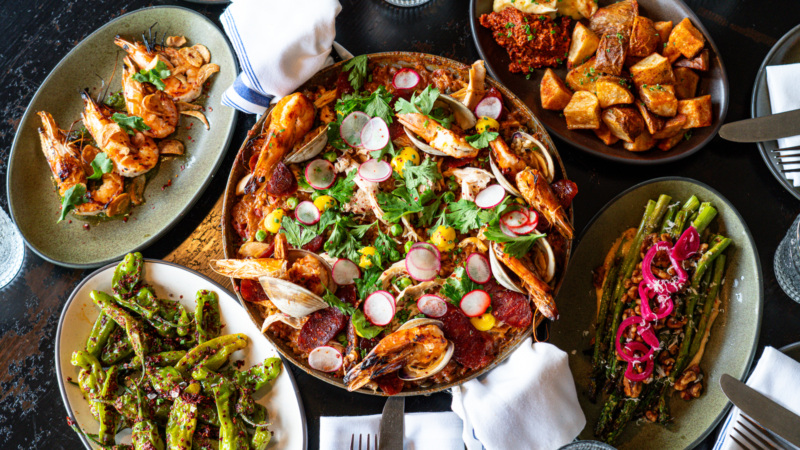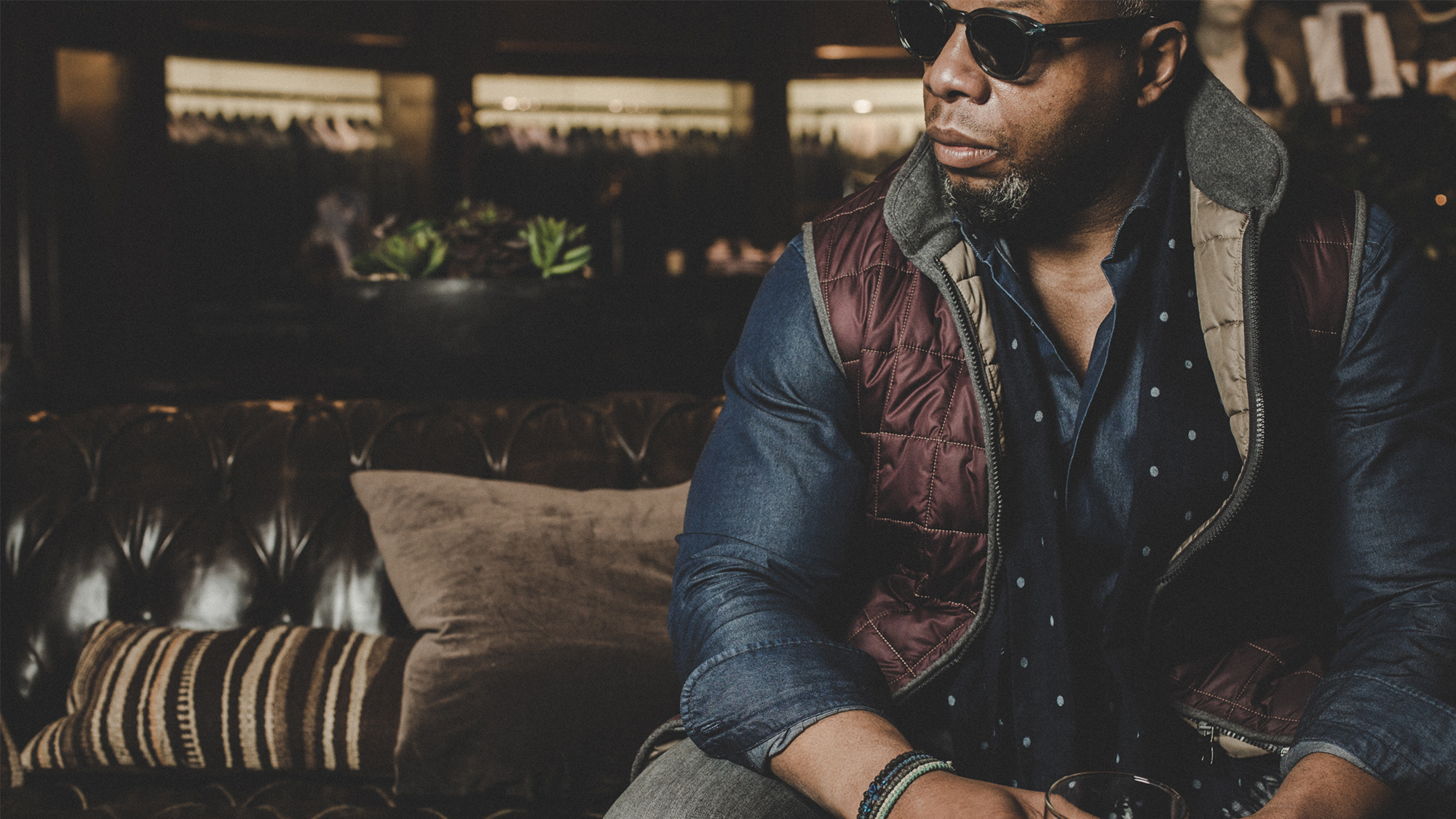
From New England’s Poshest Parties to a Place of His Own
If you’re curious about what it takes to thrive in Boston’s food scene, strike up a conversation with chef David Welch. Sitting down with the caterer-turned-restaurateur feels like a master class brimming with life lessons, “a-ha” moments, and anecdotes featuring the culinary world’s foremost luminaries.
In May, Welch opened his first restaurant, fittingly named Chef Dave’s, located at The Street in Chestnut Hill. You can feel the chef-owner’s energy in every aspect of the stylish 35-seat place — from the lively bar to the robust steakhouse-inspired fare. The opening menu reads like a compilation of his greatest hits, drawn from 30 years of catering New England’s poshest parties. And if you’ve been missing Dave’s Smoked Ribs — a signature dish from his tenure running the barbecue program at Formaggio Kitchen in Cambridge — you’re in luck. The meaty specialty, lacquered with the chef’s secret sauce, is offered as an appetizer — and it’s every bit as good as you remember it.
Recently, we sat down to chat with Welch about three decades of cooking, and finally having a restaurant of his own.
This interview has been lightly edited for length and clarity.
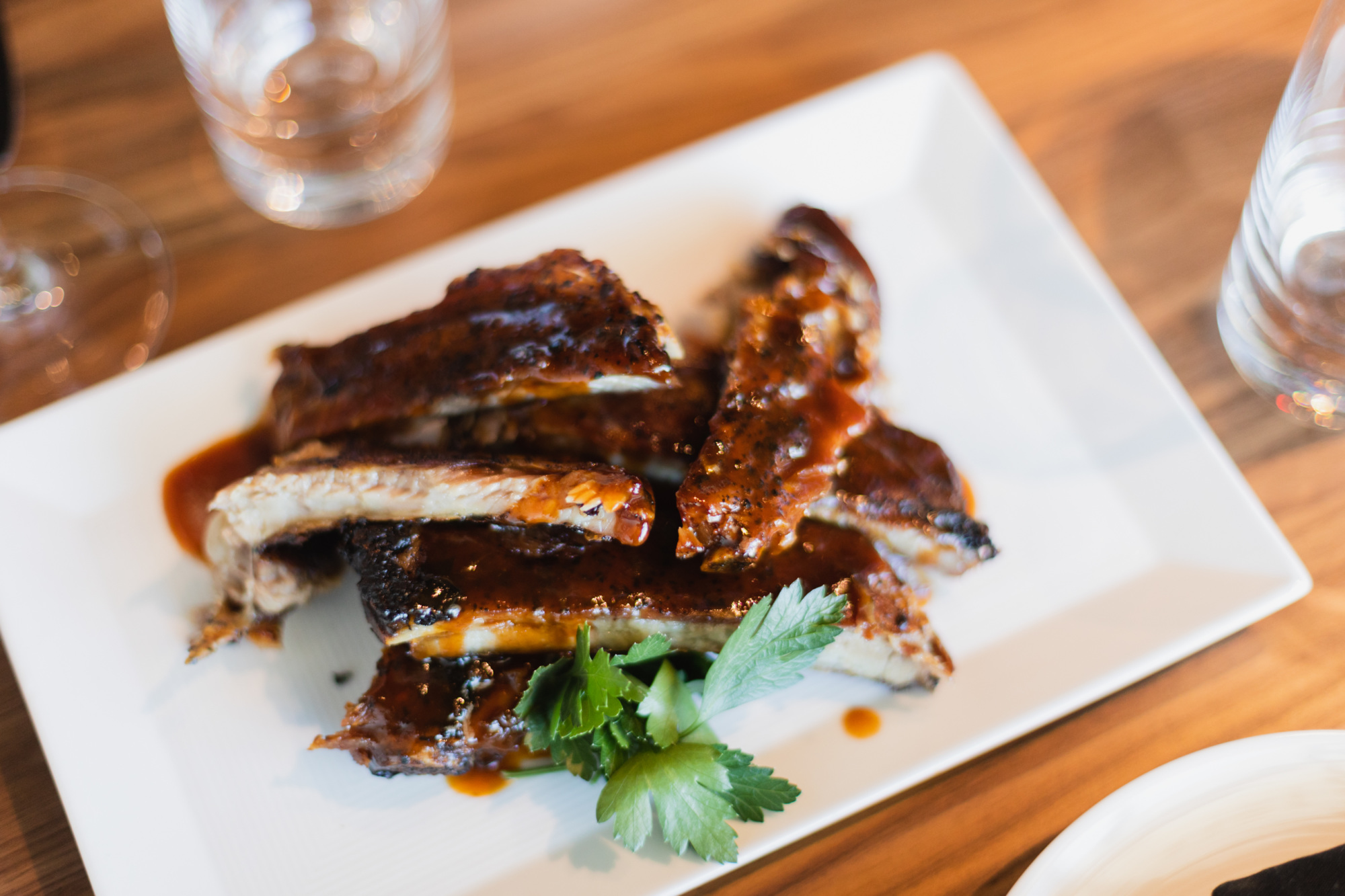
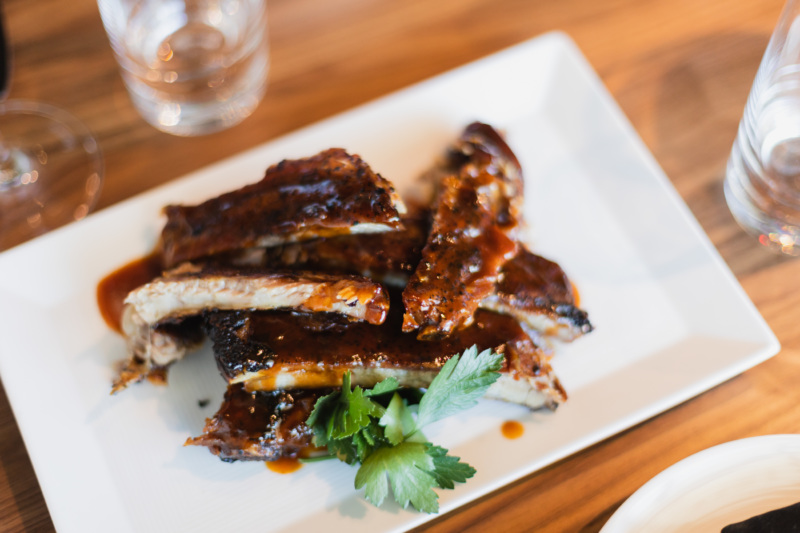
Resy: So what have the last few months been like since you opened the restaurant?
David Welch: Amazing! I’ve been in the catering business for quite a while, so coming into this was just putting my business in a bigger frame. Before, if I had 10 catering jobs a day, there were only so many I could do, because there was just one of me. Whereas now, all the people who wanted [my cooking] can come see me now. No one’s left out — unless you don’t make the reservation, that’s the only thing.
What do your guests seem most excited about?
Everything. Once they cross the threshold, they feel this amazing energy. And everyone speaks to each other. When you sit at this bar, or when you sit anywhere in here, it’s like everyone knows each other.
Talk about your connection to Chestnut Hill. Did you grow up in Newton?
I’ve been in this neighborhood for quite some time. My [catering] clients are all along here. And like I told a client the other day, I was always in the neighborhood like Batman, and left out of here like Robin! I went to elementary school, junior high, and high school here. I didn’t live in Newton — I was from Mattapan, Dorchester — but as a little kid, my parents got all of us into the METCO program. It gave inner city kids the opportunity to go to schools [in suburbs like Newton]. So here I am, back. It’s like a 360.
People come in and say, “Oh, you went to Angier? You went to Newton South?” and I say, “Yes, I did.” So that becomes a conversation piece. Or a person comes in from Mattapan, and says, “Wow, you’re a Mattapan guy.” You have different vibes that you give people, based on what you have done, where you came from, and how you did it.
After high school, what came next?
I went through an intense program in banking. I was placed at [what was then] Bank of Boston. I was on the seventh floor in One Financial Center near South Station. On my lunch break, I would have my shoes shined, and right next door, there was a magazine place that sold Macanudos. I’d smoke one on the way back, walk into the building, and put it out at the sandbox at the elevator. Then at my floor, I’d spark it up again. You can’t do that anymore! Then the stock market crashed, and that’s when I got out of the business.
I worked for a little Italian place, Cremaldi’s [in Cambridge]. I worked with this little Italian woman — her name was Rosie. That’s how I learned to make fresh pasta, sweet potato gnocchi, basil pine nut sausages, pestos, stuffed artichokes — all sorts of stuff. So I worked there for five years, and then went over to work for Formaggio Kitchen for 12. And apparently, I was growing too fast, so I left, and went out on my own — and here I am.
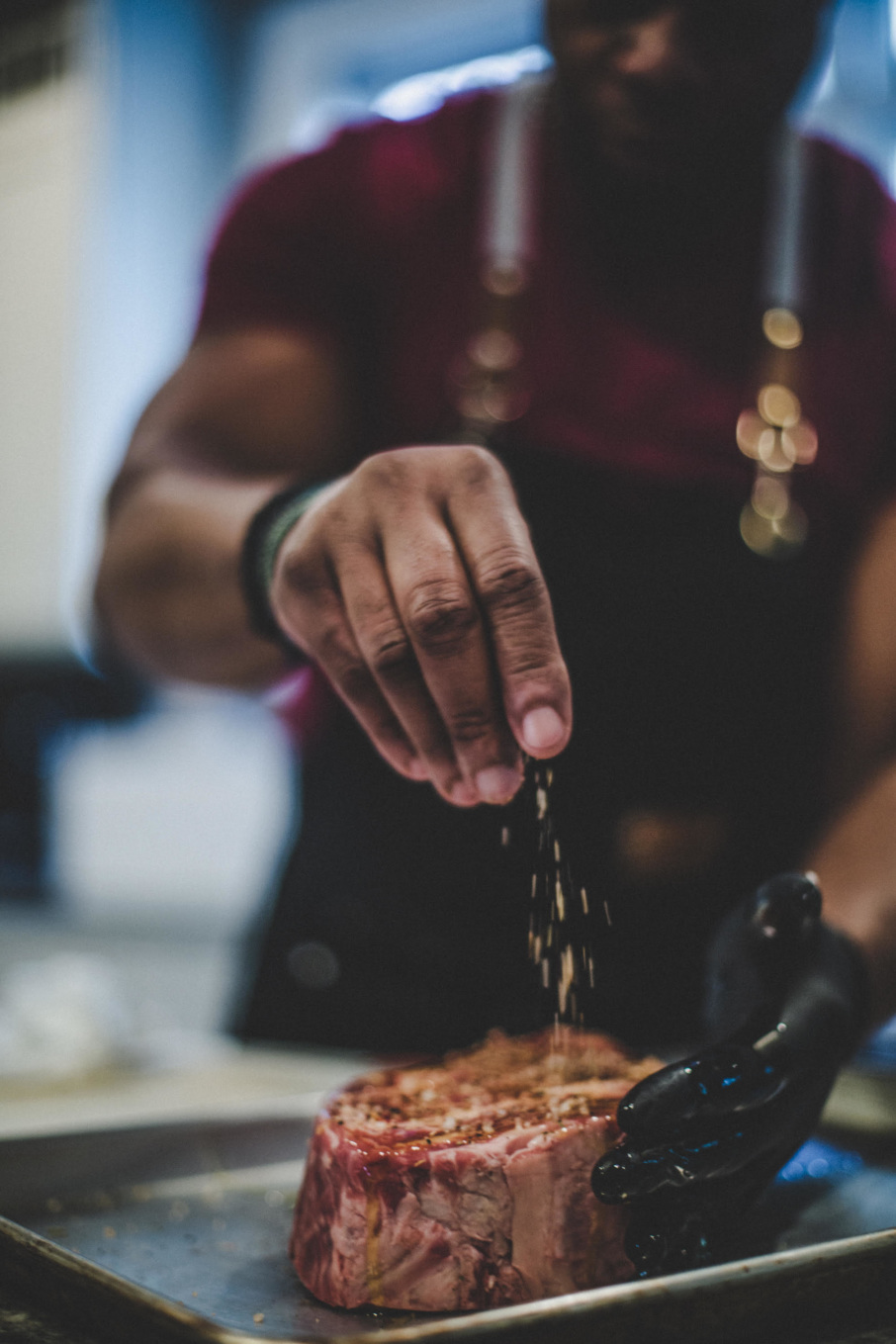
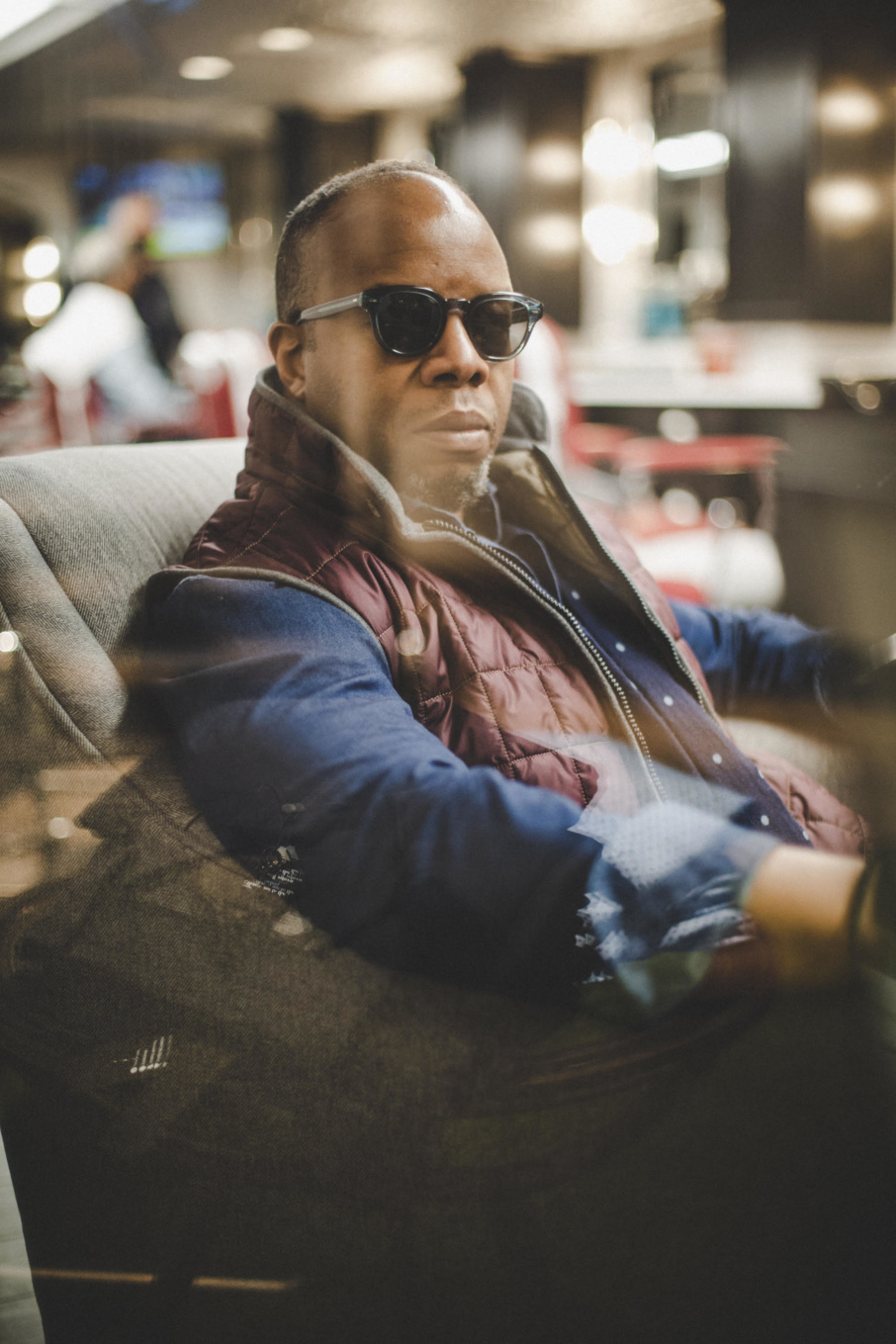
You’re known for your positivity. How does that show up in how you lead your team?
I tell my workers every day, “This is not my business. It’s only my business when I have to pay the bills, but other than that, I’m an employee just like you.” And, as I say to everyone, you could find the best guitar in the entire world. After you finish playing it tonight, you still have to fine-tune it tomorrow. So every day we come in, we fine tune, and see how we can make things better.
It’s like being captain of a ship. The captain of the ship gives energy to the crew that’s rowing or sailing the boat. No one is doing more than the next. That’s where the good energy comes from.
How did you assemble your team in the midst of the current staffing shortage?
Helen Kioroglou, who is my general manager as well as fiancée, has been very good with the front [of house]. When I first opened this place, it was a little rough finding people. But she was the mastermind. She spent the time, day in and day out, finding staff. Now everyone here works to make customers feel special. And in return, the [customers] make staff feel special.
Can I work the front? Yes, I can. But I leave that for Helen. Plus, she looks better than me. Everyone loves to see Helen. Some clients would say, “Is Helen coming?” And I’d say, “Yes.” And they’d say, “Great, let’s do the party.”
Speaking of parties, you’ve cooked for some very famous people. Can you share about one?
I was in the home of [Harvard University professor] Henry Louis Gates Jr., and his wife said, “You’re going to be cooking for someone very famous tonight. We didn’t tell you because we didn’t want you to be nervous.” And then when [the famous guest] was about to come, they told me, “Well, you know, it’s Julia Child.” And I said, “What?” I started sweating profusely. And they said, “David, just relax. Just do what you do naturally.” And I did. And after the meal and all the courses were done, she requested I come into the room, and she talked to me, and asked me some questions, like how I picked this wine to pair with this dish. It was great.
Prior to that, I had picked out cheeses for her at Formaggio Kitchen. But I didn’t know at some point in my life I would actually be cooking for this woman that I used to watch on on Channel 2 on Sunday, when I should have been doing my homework, while my parents were at church.
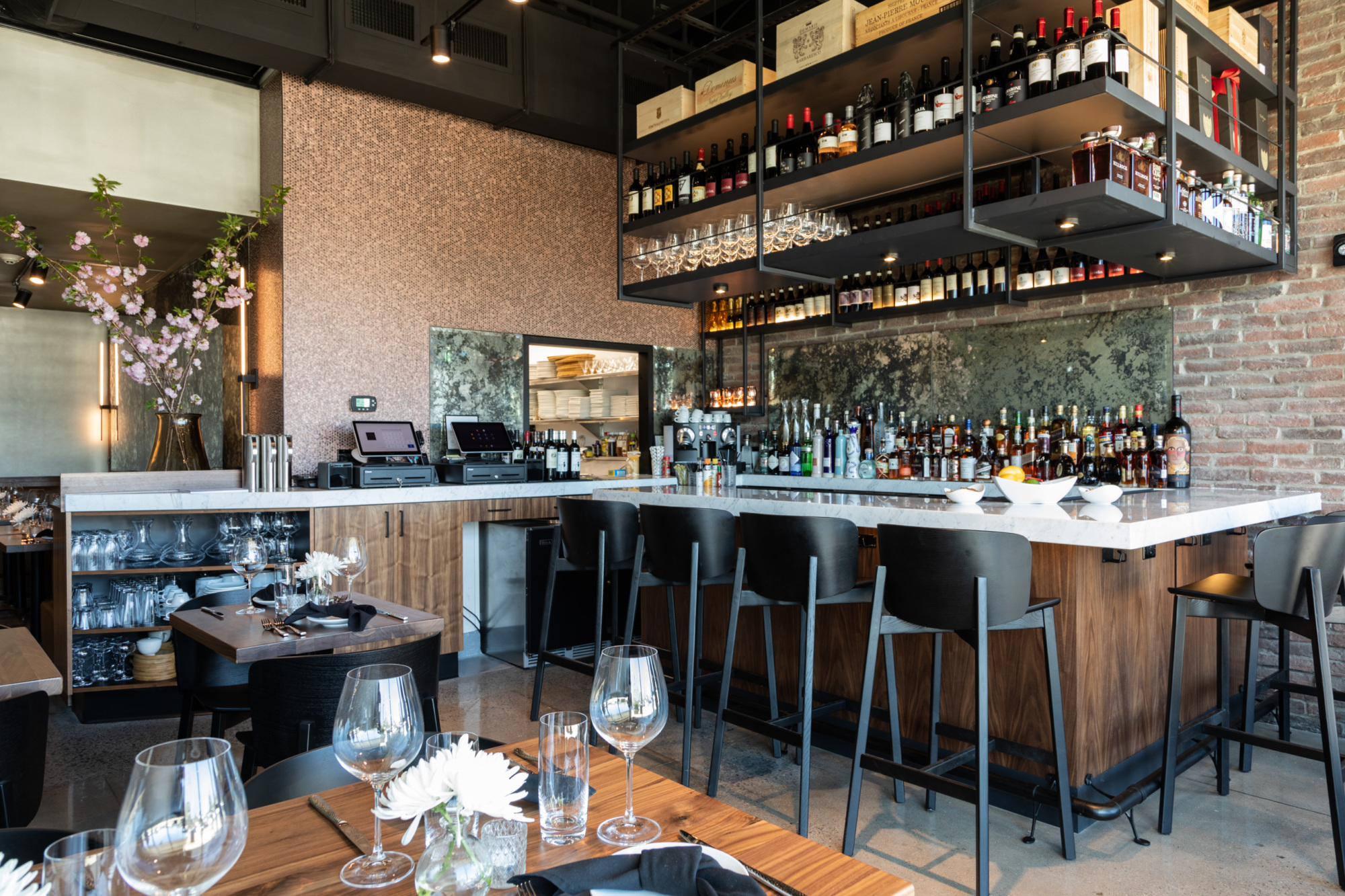
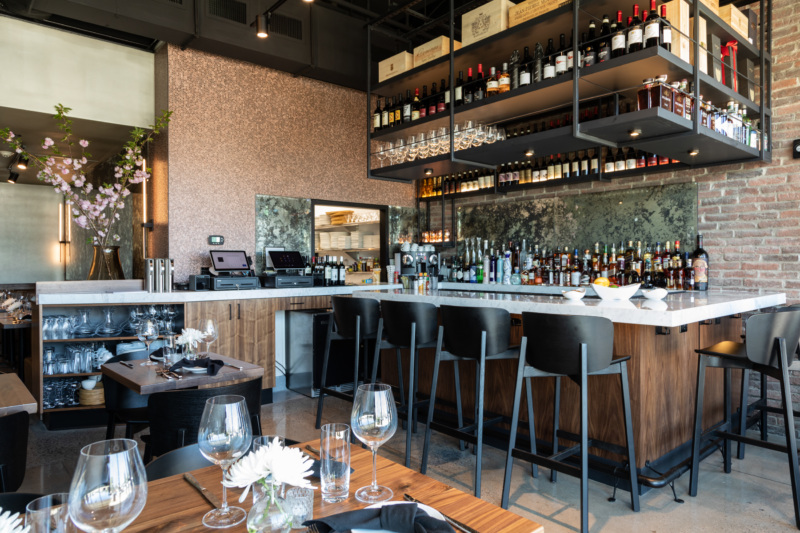
You also spent time in California at Chez Panisse. How did that opportunity come about?
When I opened up the produce side for [Formaggio Kitchen] and the barbecue division, [owner Ihsan Gurdal] sent me to Berkeley. For a little bit, I was in Alice Waters’ kitchen. At that stage, I didn’t know how great of an opportunity that was. But it was fantastic, seeing her farm, how she raised her vegetables and her turkeys. [Even] back then, composting was big in California, so when you clipped the beans, there was a bucket right there to throw that in, and we’d take it to her farm and give it to her farmer. I remember going over there, and bringing him a big boule of bread. I handed it to him, and he put it under his armpit. He was walking around, showing me the farm, and he asked me if I’d like a piece, and I said, “No, thank you, I’m all set.” But it’s just natural, you know? It’s a natural place — it’s beautiful. He didn’t think anything of it. He’s a farmer.
Let’s talk food. How are you dealing with the high cost of everything?
So you know the cost [of food] at this time is very high. But I also have the clientele — the same people I’ve been servicing for so many years — that understand that.
I’m only serving prime meats and the best cuts of fish — the freshest of the fresh, and the best of the best. I have olive oil coming in from Greece that’s brought in for me. The salts, too — they’re being seasoned before they touch the food. So for me to go through all that to bring that to you, if you do not appreciate that, then that’s fine. I’m probably not the guy for you. But for the people who do appreciate it, they love it, and they understand it.
I give a very fair price. I don’t gouge. If you go to another steakhouse, you’re paying for that steak, and that steak only. But when you come to me, you’re paying for the steak and the accoutrements — the asparagus, the mashed potatoes that go with it — that make the meal perfectly balanced. So it’s a great value. I’m giving you room to have dessert, and maybe another drink or two. It’s the experience! It’s only expensive if it’s not good.
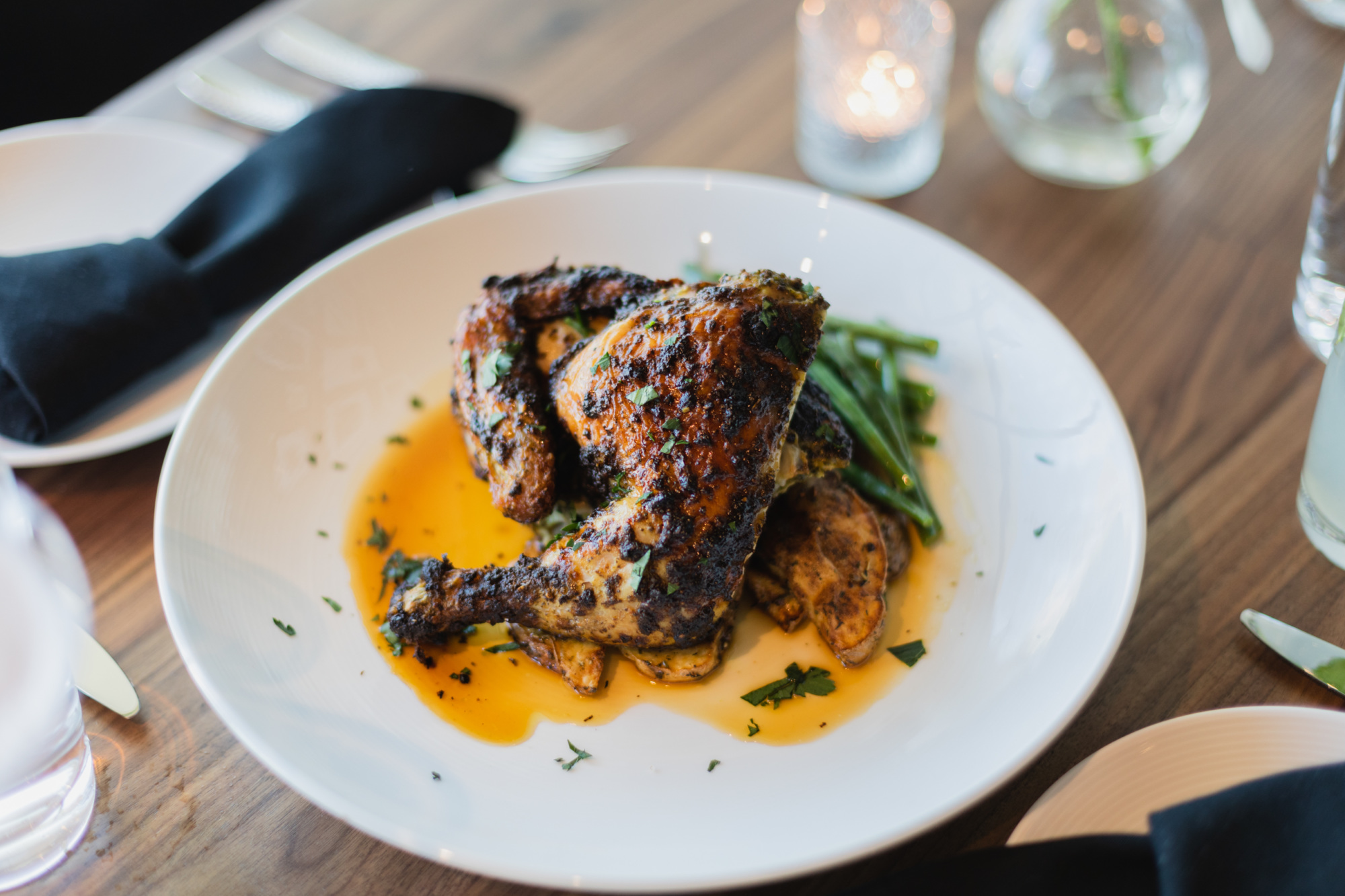
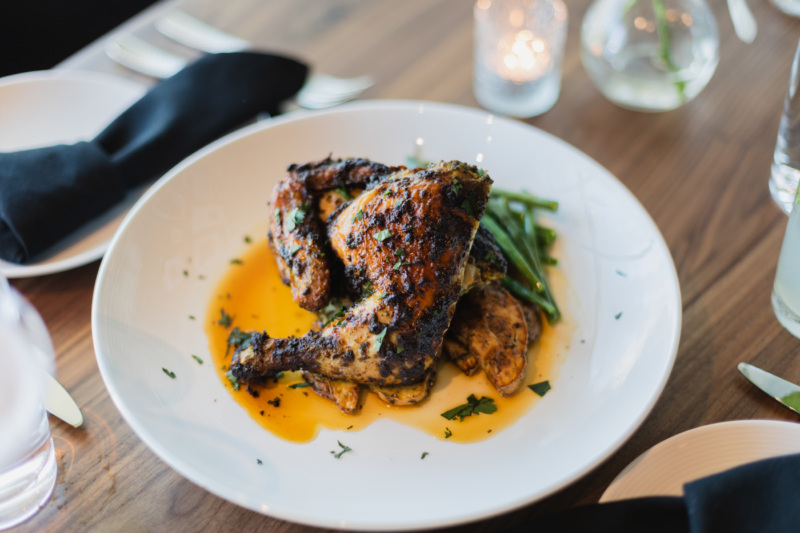
Talk about your approach to curating the wine list.
The wines suit the food here, and people have a beautiful experience. These are wines I’ve enjoyed in the homes of my clients. After work, we would sit down and finish the wine, and talk about how it evolved — like how a Bordeaux paired with the squab or the quail, or how the red Burgundy went perfectly with the fish. There’s always some flavor profile we’re working on. And like I say, wine is not to drink to get fuzzy-headed. For me, I take it as a spice, a seasoning. I want someone to think, “Wow, the seasonings on this steak really opened up this wine — and the wine really made this food come alive.” Those are the experiences I want people to have.
So you’ve spent your career giving people beautiful experiences.
I’ve been in this business for almost 30 years. I’ve cooked for so many people I thought I would only see in the movies. So, sometimes I’m like, “Am I really doing this?” [And I tell myself,] “Yes you are.”
When people discover something that’s delicious and nice, no matter what it is — it could be a jewelry store, it could be a cake, whatever — they will [recommend it] to a friend who will appreciate it just as much as they do. That’s how it happened for me. It’s great that I have the opportunity and the skill to give people a special feeling, and leave a lasting impression.
Any additional thoughts about your path in food?
In all the time I’ve been in the food business, I can’t say anything has happened that would make me regret my decision getting into it. Just like anything, it requires work. Like going to the gym, you get stronger. Everyone I know that’s done well for themselves, there’s only one way to do it: Work hard.
If you could go back in time and give advice to your younger self, what would that advice be?
I would say, “Don’t be discouraged. Just keep on pushing and stay focused.” I tell Helen all the time, the sacrifices I made in life, to be on this platform, I don’t think many people would have done that. But I had a vision, and I had to see it come alive. So that’s what I would say to the younger me. Never let anyone tell you that you can’t do something. They’re probably projecting onto you what they can’t do. But if you have a passion, focus on that, and you will be just fine.










